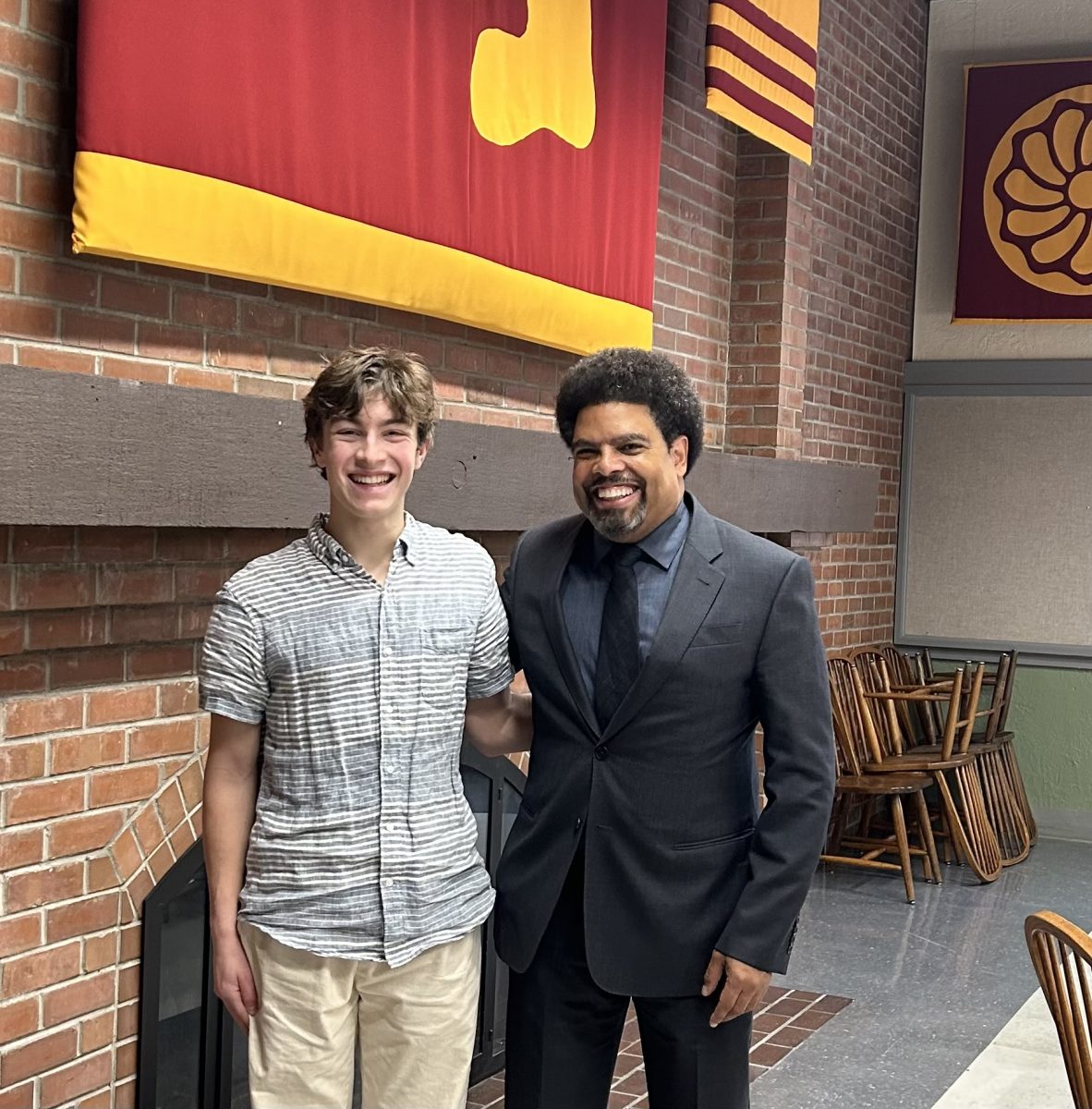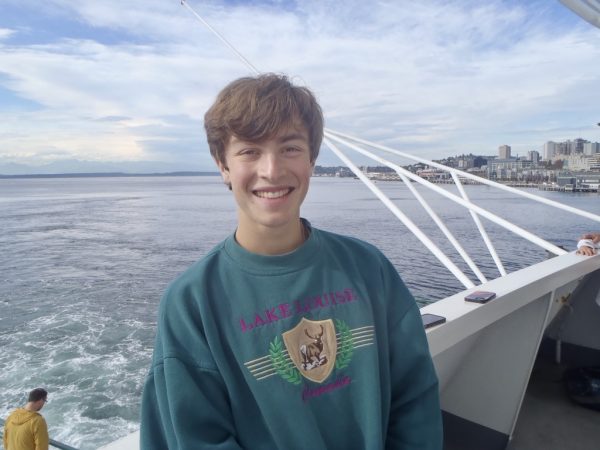Darrick Hamilton is a professor of Economics and Urban Policy at the New School and founder of the school’s Institute on Race, Power, and Political Economy. He studies economic disparities between racial and ethnic groups, and has proposed policies including “baby bonds” (bonds that children can access when they turn 18) and a federal job guarantee. Prior to his assembly speech on December 13, 2023, Tatler sat down with Professor Hamilton to discuss ethical economics and a vision for creating economic change.
Zane R. ’24 (ZR): Could you start by talking about how you became interested in Economics, especially the more social justice-oriented side of the field?
Darrick Hamilton (DH): It’s serendipity — I originally majored in economics thinking it was going to be a feeder to law or business school to make sure I’d have a livelihood to sustain myself. However, I learned through an affirmative action summer research program that I could make a good standard of living as a professor. And then for the lean towards economic justice, I think some of it might be innate, but a lot of it is environment. I just don’t like unfairness. I like to compete, but I hate when the rules are not fair.
ZR: What do you think should be the role of private schools in promoting economic justice?
DH: I also went to a school similar to Lakeside in terms of it being a private school in an urban setting with an ethical orientation. I think Lakeside can ensure that its students not only get rigorous technical training but that there is an emphasis on values, on justice. As a private institution, it has a lot of leeway to do big, bold things without some of the bureaucracy that might take place in another structure.
ZR: Higher education is a major part of your policy focus. How can the university system be made more ethical?
DH: Many of my proposals are grounded in the public using its purse and resources, specifically for investing more in public colleges and especially HBCUs (Historically Black Colleges and Universities). Public investment is more sustainable in that it’s not vulnerable to the charitable inklings of people with power. Public investment through policies like the GI Bill even fueled the rise of America’s private universities, but not every place had access to those public dollars because of racism and discrimination. So there’s a moral responsibility for diverse investment, but another point is that from diverse backgrounds, we get the most innovative ideas that can push the status quo.
ZR: How would you try to convince skeptics of the value of your proposals like baby bonds and a job guarantee?
DH: We can emphasize that it’s important to commit to justice simply because it’s the right thing to do. We have to use narratives that more accurately explain the concept of justice. We’ve also moved into a framing that treats the government as if it’s something different from us. And almost everything that’s related to our public structure entails economic politics and the ability to divide people. What’s being offered is relative status: Some notion of “however bad your lot in life is, you won’t be them.” That has psychological as well as economic meaning if we don’t present an alternative vision of the value of justice for everyone. Ultimately, it’s our government. We might not as individuals have the power to change it. But collectively we have to build that power.
ZR: And how, when, and where do you imagine these sorts of policies being first introduced?
DH: Overton windows — the opportunities to do new things — emerge in ways that we can hardly predict. Let’s look at the pandemic. Could you have imagined that the U.S. government would’ve sent trillions of dollars directly to the American people to protect them from having to go to work and risk getting the coronavirus, in a way that kept up our aggregate demand so that our recession was one of the shortest on record? We need to build on that. Imagine if we were better prepared for this pandemic, both in terms of having the policies in place, but then also a narrative and politics to build upon it. So that the next time a pandemic occurs, we’re better.
ZR: Do you think there’s a risk of tying those policies to emergencies?
DH: It’s nuanced. [With the COVID-era economic stimulus] we saw a backlash, and it also caused inflation. I don’t want to be insensitive to people that struggle to pay their bills with rising prices, but if we were prepared, we could have better described and addressed the ways in which, for example, we did not have a reliable supply chain. There’s even profit gouging for that inflation issue. We need a strong enough narrative to fight the backlash.
ZR: You’ve been a vocal supporter of Bernie Sanders’ economic agenda. Even though he’s not running for president again, what do you think the legacy of his campaigns will be?
DH: Many of his ideas, once ridiculed, are now mainstream — things like the elimination of student debt. And he himself has grown, I’d say, like we all do. I saw an evolution of a greater inclusion in race and an understanding that our problems are not just class-based from 2016 to 2020. Most importantly, I think he has motivated a generation of new politicians who are committed to investments in people.
What has given me the most excitement is that I feel as though younger generations are more committed in a steadfast way to a different vision of society. Now, this is not a critique but a caution, it’s going to require some rigor behind it as well. I would encourage young people to commit to the vision, not simply interest groups. What do I mean by interest groups? Well, say these poor people over here have polluted water. And I’m an environmental enthusiast and like the aesthetics of nature, so I’m going to combine those interests. You know, that’s not a bad thing per se, but that can’t be everything. We have to commit to justice simply because it’s the right thing to do regardless of whether it’s directly in your interest.


